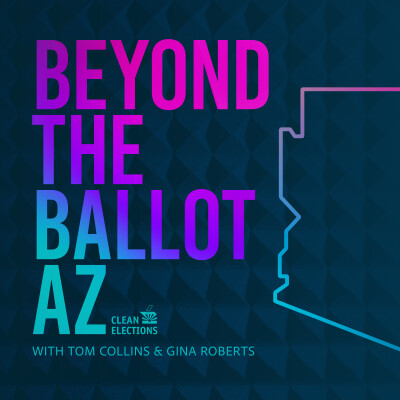Description
Campaigns and endorsements for 2026 are underway, and for the first time, voters will elect the Governor and Lieutenant Governor on a joint ticket.
Today, Tom and Gina host a lightning round table with Republican State Senator J.D. Mesnard and former Democratic State Senator Sean Bowie on the role of the lieutenant governor and how it can provide insight to voters.
Plus, a primer on running for office with insights into campaign funding options and eligibility.
Hosted on Ausha. See ausha.co/privacy-policy for more information.
